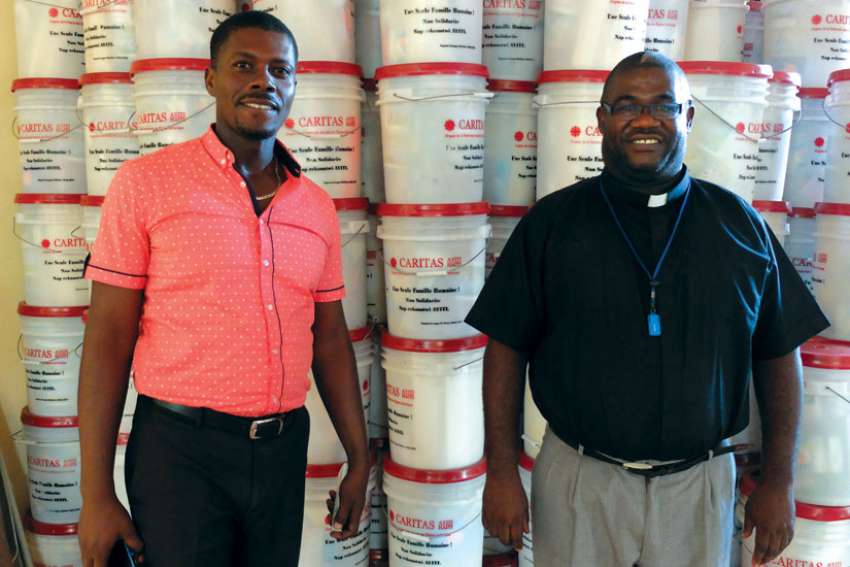“This is a very serious catastrophe which has been underestimated by everybody because the loss of life was relatively low,” said D&P program officer Mary Durran. “However, there are a lot of other elements that do make it a serious catastrophe.”
Durran visited southwestern Haiti last week after the Category 5 hurricane destroyed about 200,000 homes, leaving 1.4 million people in need of humanitarian aid.
She said the government was much better prepared for this hurricane, having learned valuable lessons from the 2010 earthquake that killed more than 200,000 people. As a result, it was able to evacuate the region efficiently.
The Haitian government has put the death toll from the hurricane at 546, although other sources report figures more than three times higher.
Hurricane Matthew’s impact was mainly felt in the southern coast with about 90 per cent of the houses destroyed, along with most of the region’s plantations and more than 350,000 livestock killed.
With planting season about to begin, Haitians are worried that the hurricane has left them without a source of food.
“The planting season runs to the second and third week of November, so we don’t have a very great window at the moment,” said Durran. “There are people who are unable to get seeds and plant now.”
If residents are not able to plant crops, they will have to rely on food aid until the next planting season in February.
The rainy season is also in full swing and people are struggling to find shelter because most of the houses had the roofs ripped off by strong winds. As families begin to move out of temporary shelters and back into their community, people are taking shelter in one or two houses that are still standing.
“In the town of Torbeck, we went to visit a priest and the priest’s house was still quite intact,” said Durran. “He said he had 11 people sleeping at his house at night. ... And you have situations where they have a tarp that they’ve put on top of a part of the house, so you have everybody huddled in one room.”
An ongoing cholera outbreak has also worsened in the region, killing at least 29 people.
Durran said the worst is yet to come for the Haitian people affected by the storm. D&P has launched a nationwide appeal to fund relief efforts in the region. Collections have already begun in parishes across Canada.
“The best thing really is to donate money,” said Durran. “Many people ask about going to Haiti and helping but we find that actually, it’s the Haitian organizations on the ground who really know what to do best and basically, they need money to carry out their operations.”
To learn more about relief efforts in Haiti, visit devp.org/haiti.

